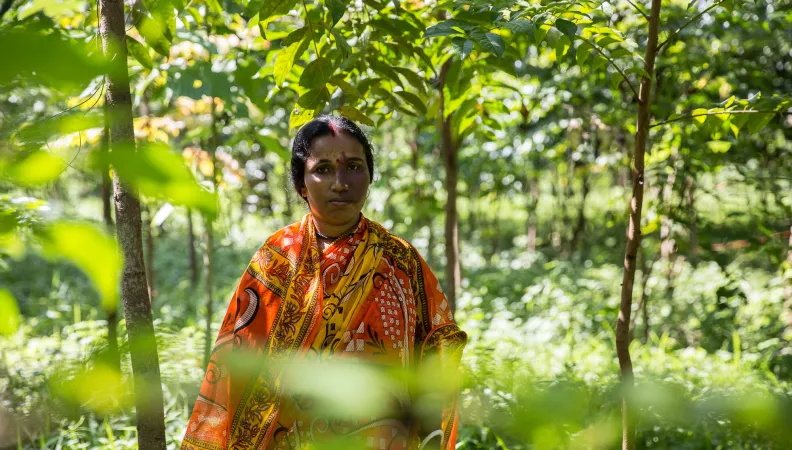Share the page
Restoring ecosystems with the residents of Assam
Project


-
Project start date
-
Status
Ongoing
-
Project duration
-
12 years
-
AFD financing amount
-
€ 80200000
-
Country and region
-
Location
-
Kaziranga
-
Type of financing
-
Beneficiaries
-
State of Assam
AFD supports a sustainable and participatory management of forest ecosystems in Assam, while developing the economic resources of the populations.
Context
With 35 per cent of its landmass covered with forests, five national parks and 18 wildlife sanctuaries, Assam, in North East India, is a haven for a unique variety of flora and fauna. Over the years, however, forest lands began to shrink under demographic pressure, development projects, and overexploitation. Gradually, this started to affect the region's overall ecology.
As a mitigation measure, the Assam government, with the support of AFD, launched the Assam Project on Forest and Biodiversity Conservation (APFBC) in 2012, to restore forest ecosystems, protect wildlife and enhance the livelihood of the forest-dependent communities.
Following the successful completion of the first phase of this project, the government of Assam and AFD renewed their partnership for 5 more years in order to increase the project's coverage and further build upon its success.
Description
The project aims to:
- Build the capacity of the forest administration through an overhaul of the existing infrastructure, procurement of new equipment and vehicles, training and introduction of new work methods.
- Draw up and execute concerted plans for forest management and protected areas with the local village committees.
- Provide alternate livelihoods, including training, as well as market linkages to beneficiaries from the first phase of the project and develop additional alternative livelihood opportunities for forest development communities through skill-development programs.
Impacts
- Massive reforestation efforts have been undertaken: More than 21,000 hectares of land have been reforested with help from villagers’ committees.
- The efforts in capacity building of forest guards have contributed towards increasing the park’s one-horned rhino population, usually targeted by poachers, to an impressive 2,400.
- New nurseries have been developed and wetlands and grasslands have also been restored.
- 4,500 people have been trained in 15 different trades, helping to revive the local economy while protecting forest ressources.


